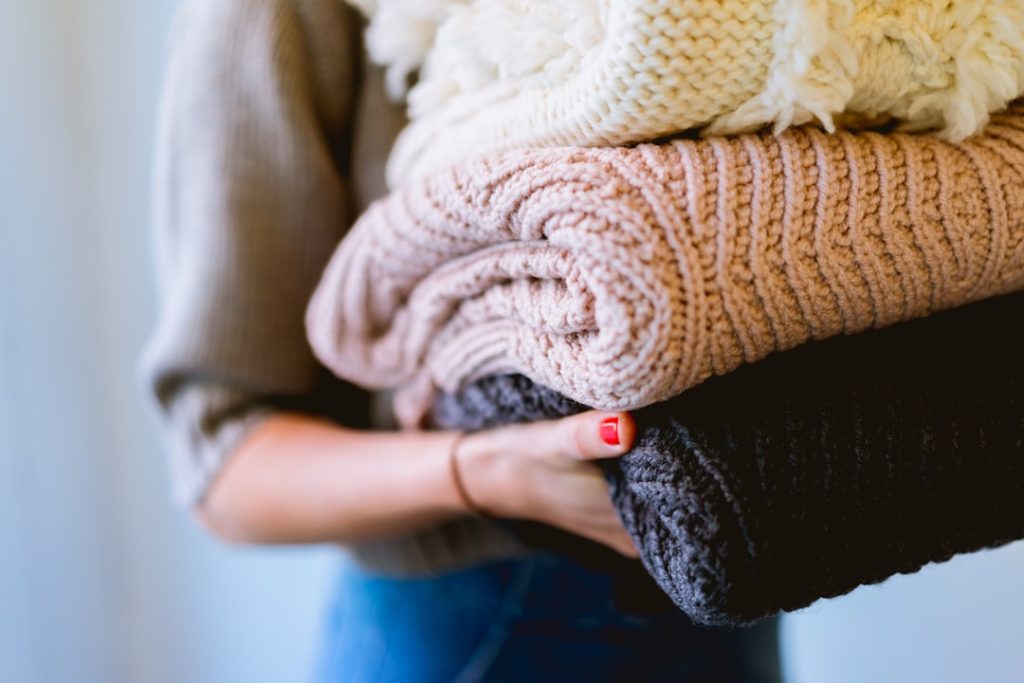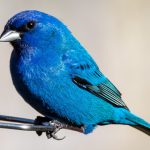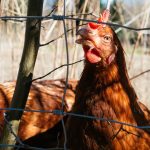Chickens have specific requirements for their well-being, particularly during winter. Providing a warm, dry shelter is essential to protect them from cold and damp conditions. Fresh water and a balanced diet are crucial for maintaining their energy levels and immune system.
Winter also brings increased predator risks, necessitating additional protection measures. Cold temperatures can lead to frostbite and hypothermia in chickens if proper shelter is not provided. Dehydration is a concern in cold weather, making constant access to fresh water vital.
A nutritionally balanced diet is necessary to support their health and energy needs during winter. Predators may become more aggressive in their search for food during this season, requiring heightened vigilance and security measures for the flock. Understanding and addressing these needs is fundamental to maintaining the health and comfort of chickens throughout the winter months.
By implementing appropriate care strategies, chicken owners can ensure their flock thrives despite challenging weather conditions.
Table of Contents
- 1 Providing proper shelter for winter
- 2 Ensuring adequate ventilation and insulation
- 3 Adjusting feeding and water systems for winter
- 4 Protecting chickens from predators in winter
- 5 Monitoring the health of chickens in winter
- 6 Implementing additional measures for extreme cold weather
- 7 FAQs
- 7.1 What are some important considerations for keeping chickens in Minnesota during winter?
- 7.2 What type of shelter is best for chickens in Minnesota winter?
- 7.3 How can I ensure my chickens have access to fresh water during winter in Minnesota?
- 7.4 What should I feed my chickens to help them stay warm and healthy during Minnesota winter?
- 7.5 Are there any special health considerations for chickens in Minnesota winter?
Key Takeaways
- Chickens need extra care in winter due to their susceptibility to cold temperatures and potential health issues
- Proper shelter should be provided to protect chickens from harsh weather conditions and keep them warm
- Adequate ventilation is crucial to prevent moisture buildup, while insulation helps maintain a comfortable temperature inside the coop
- Feeding and water systems should be adjusted to ensure chickens have access to enough food and unfrozen water
- Predators are more active in winter, so additional measures such as secure fencing and predator-proofing the coop are necessary
- Regular health checks and monitoring for signs of illness or distress are important to ensure the well-being of chickens in winter
- In extreme cold weather, additional measures such as heat lamps or heated waterers may be necessary to keep chickens safe and healthy
Providing proper shelter for winter
Key Factors to Consider
When it comes to providing proper shelter for chickens in winter, there are several key factors to consider.
Insulation and Ventilation
The shelter should be insulated to help retain heat and keep the chickens warm. It should also be well-ventilated to prevent moisture buildup, which can lead to respiratory issues in chickens. Additionally, the shelter should be designed to provide protection from drafts and extreme weather conditions.
Predator-Proofing and Safety
It’s also important to ensure that the shelter is predator-proof, with secure doors and windows to keep out potential threats. By providing a suitable shelter that meets these criteria, you can help your chickens stay comfortable and safe during the winter months.
Ensuring adequate ventilation and insulation

Adequate ventilation and insulation are crucial for maintaining a healthy environment for chickens during the winter months. Proper ventilation helps to remove moisture and prevent the buildup of harmful gases, while insulation helps to retain heat and keep the chickens warm. By ensuring both adequate ventilation and insulation in the chicken coop, you can create a comfortable and safe environment for your flock throughout the winter.
When it comes to ensuring adequate ventilation for chickens in winter, it’s important to provide enough airflow to remove moisture and prevent the buildup of harmful gases such as ammonia. This can be achieved by installing vents or windows that can be opened and closed as needed. Additionally, insulation is essential for retaining heat and keeping the chickens warm during cold weather.
This can be achieved by adding insulation to the walls and roof of the coop, as well as using materials such as straw or hay for bedding. By ensuring both adequate ventilation and insulation, you can create a healthy and comfortable environment for your chickens during the winter months.
Adjusting feeding and water systems for winter
Feeding and watering systems must be adjusted to meet the specific needs of chickens during the winter months. Chickens require a balanced diet that provides them with the necessary nutrients to maintain their health and energy levels in cold weather. Additionally, they need access to fresh water at all times, as dehydration can occur quickly in low temperatures.
By adjusting feeding and watering systems to meet these needs, you can help your chickens stay healthy and well-nourished throughout the winter. When it comes to adjusting feeding systems for chickens in winter, it’s important to provide a balanced diet that includes a mix of grains, protein, vitamins, and minerals. This can be achieved by offering a combination of commercial feed, kitchen scraps, and supplemental treats such as mealworms or greens.
Additionally, it’s important to ensure that the feeding area is kept clean and dry to prevent mold growth and spoilage of feed. When it comes to adjusting watering systems for chickens in winter, it’s important to provide access to fresh water at all times. This can be achieved by using heated waterers or regularly checking and replacing frozen water sources.
By adjusting feeding and watering systems to meet these needs, you can help your chickens stay healthy and well-hydrated throughout the winter.
Protecting chickens from predators in winter
Predators can pose a significant threat to chickens during the winter months, as they may be more desperate for food and more willing to take risks to get it. It’s important to take steps to protect your flock from potential threats by securing the coop and run with sturdy fencing and locks. Additionally, it’s important to be vigilant and proactive in monitoring for signs of predator activity and taking steps to deter them from approaching the coop.
By implementing measures to protect your chickens from predators in winter, you can help ensure their safety and well-being. When it comes to protecting chickens from predators in winter, there are several key measures that can be taken. First, it’s important to secure the coop and run with sturdy fencing that is buried underground to prevent digging predators from gaining access.
Additionally, it’s important to use locks or latches on doors and windows to prevent predators from forcing their way into the coop. It’s also important to be vigilant in monitoring for signs of predator activity, such as tracks or scat near the coop, and taking steps to deter them from approaching by using deterrents such as motion-activated lights or sound devices. By implementing these measures, you can help protect your chickens from potential threats during the winter months.
Monitoring the health of chickens in winter

Visual Inspections and Behavioral Monitoring
Daily visual inspections of each chicken are vital to identify signs of illness or injury. Additionally, monitoring their behavior and interactions with other flock members can help detect any potential issues early on.
Physical Condition Checks
Regular checks on the physical condition of your chickens are also crucial. This includes inspecting their feather quality for signs of mites or lice, as well as monitoring their body condition score for signs of malnutrition or obesity.
Proactive Steps for a Healthy Flock
By monitoring the health of your chickens in winter, you can take proactive steps to ensure their well-being and address any issues that may arise before they become serious problems. This proactive approach can help prevent illnesses and injuries, ensuring a healthy and thriving flock throughout the winter months.
Implementing additional measures for extreme cold weather
In extreme cold weather conditions, additional measures may be necessary to ensure the health and well-being of your chickens. This can include providing supplemental heat sources such as heat lamps or heated pads in the coop, as well as adding extra bedding material for insulation. Additionally, it’s important to take steps to prevent frostbite by applying petroleum jelly to combs and wattles or using chicken sweaters for added warmth.
By implementing these additional measures for extreme cold weather, you can help your chickens stay comfortable and safe during harsh winter conditions. When it comes to implementing additional measures for extreme cold weather, it’s important to consider the specific needs of your flock and take proactive steps to address them. This can include providing supplemental heat sources such as heat lamps or heated pads in the coop to help maintain a comfortable temperature for your chickens.
Additionally, adding extra bedding material such as straw or hay can provide additional insulation against cold temperatures. It’s also important to take steps to prevent frostbite by applying petroleum jelly to combs and wattles or using chicken sweaters for added warmth. By implementing these additional measures for extreme cold weather, you can help ensure the health and well-being of your flock during harsh winter conditions.
In conclusion, understanding the needs of chickens in winter is crucial for ensuring their health and well-being during the colder months. By providing proper shelter, ensuring adequate ventilation and insulation, adjusting feeding and water systems, protecting from predators, monitoring health, and implementing additional measures for extreme cold weather, you can help your flock stay healthy and comfortable throughout the winter season. With careful attention and proactive care, you can ensure that your chickens thrive even in the coldest of conditions.
If you’re looking for more information on keeping chickens in the winter, you might want to check out this article on choosing the right heater for a chicken coop. It provides helpful tips on how to keep your chickens warm and comfortable during the cold Minnesota winter months.
FAQs
What are some important considerations for keeping chickens in Minnesota during winter?
Some important considerations for keeping chickens in Minnesota during winter include providing adequate shelter, ensuring access to fresh water, and providing a balanced diet to help them stay warm and healthy.
What type of shelter is best for chickens in Minnesota winter?
A well-insulated and draft-free coop is best for chickens in Minnesota winter. It should also have good ventilation to prevent moisture buildup, which can lead to frostbite.
How can I ensure my chickens have access to fresh water during winter in Minnesota?
To ensure your chickens have access to fresh water during winter in Minnesota, consider using heated waterers or manually changing the water multiple times a day to prevent it from freezing.
What should I feed my chickens to help them stay warm and healthy during Minnesota winter?
Feeding your chickens a balanced diet that includes high-quality layer feed, scratch grains, and access to fresh greens can help them stay warm and healthy during Minnesota winter.
Are there any special health considerations for chickens in Minnesota winter?
Chickens in Minnesota winter are susceptible to frostbite, so it’s important to regularly check their combs, wattles, and feet for signs of frostbite and take measures to prevent it, such as applying petroleum jelly to exposed areas. Additionally, ensuring they have access to dust baths can help prevent mite and lice infestations.
Meet Walter, the feathered-friend fanatic of Florida! Nestled in the sunshine state, Walter struts through life with his feathered companions, clucking his way to happiness. With a coop that’s fancier than a five-star hotel, he’s the Don Juan of the chicken world. When he’s not teaching his hens to do the cha-cha, you’ll find him in a heated debate with his prized rooster, Sir Clucks-a-Lot. Walter’s poultry passion is no yolk; he’s the sunny-side-up guy you never knew you needed in your flock of friends!







